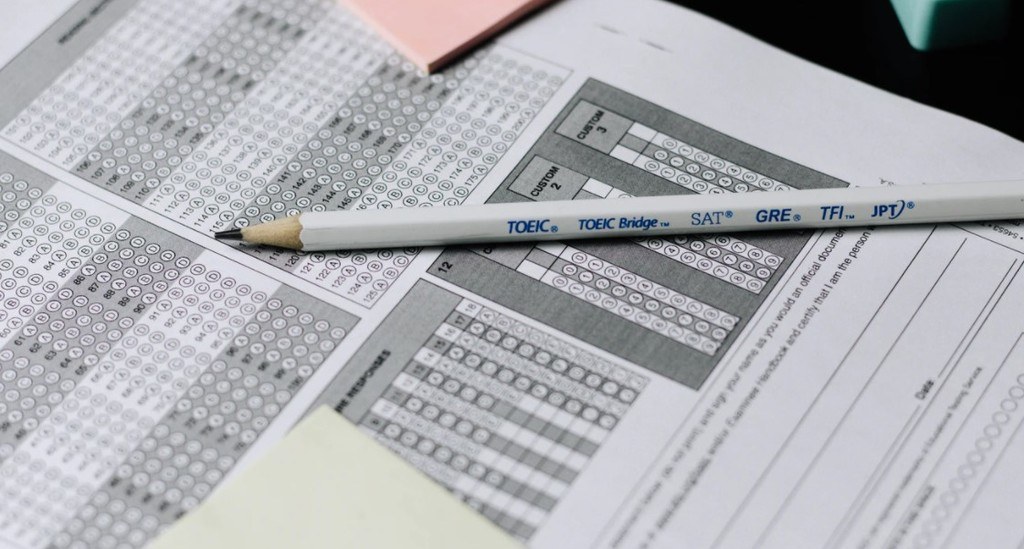Is 1400 a Good SAT Score? | How Does It Compare to National Averages?
After working yourself half to death, the big day finally comes and your SAT score arrives. Far from average, your goal has been to score well above other test takers to secure a spot at a competitive college or university.
And it appears your hard work and dedication have paid off, as the final number is right in line with your expectations. You scored a 1400 or thereabouts, which is the SAT score you had in mind all along.
Nevertheless, you suddenly find yourself questioning whether or not a 1400 SAT score really is as good as it sounds. Or for that matter, what exactly defines a good SAT score in the first place. These awesome SAT books we reviewed and SAT courses you can rely on will help you answer that question.
This is where things get somewhat tricky, as evaluating the value of a SAT score is about more than raw numbers alone. Is 1400 a good SAT score? Absolutely. Does a 1400 SAT put you ahead of the pack with leading colleges and universities across the country? Not necessarily, and here’s why. Many colleges accept candidates with 1200 or less, as we reviewed here.
Comparing SAT Scores to National Averages
As you probably know by now, the total SAT score range is from 400 points to 1600 points. This is split between two sections - Evidence-Based Reading and Writing (EBRW) and Math - both of which are worth 200 to 800 points each.
The combined total of these two scores is known as your composite score, which is your final SAT score.
Simply by looking at these numbers alone, you can figure out that 1400 is a pretty decent score. As it edges towards the top end of the score range, it is definitely a score to be proud of.
As for how it positions you in terms of college admission processes or potential scholarships, it is typical for colleges to consider applications based on percentiles, rather than scores. This means that rather than simply considering your own score, you need to consider how all other test takers did that year - high school students and private adult test takers alike. So, before you read on, check out this post on SAT average scores.

For example, if your score of 1400 set you in the 75th percentile, this would mean you performed as well as or better than 75% of all other test takers - way better than being in the middle 50. In other words, you are within the top 25% of all test takers that year.
This is what universities and colleges tend to look at when considering applications, due to the fact that scoring averages across the country differ significantly. As it stands right now, the average SAT composite score (according to the College Board) across the US, in general, is around 1060. In which case, a score of 1400 on the SAT is way above the national average and would put you in a great position to qualify for a competitive university.
In fact, if you could increase your score to 1450, you would rank within the top 3% of all test takers in the country. At which point, getting your application through the door of just about any university should not prove much of a challenge. New York, Los Angeles, Emory University - any campus in the country will probably welcome you.
Here is a brief overview of how students are ranking right now in the percentile system in both the Math and EBRW portions of the test:
SAT Score (Out of 800)- Math Percentile -EBRW Percentile
800 | 99+ | 99+ |
750 | 96 | 99 |
700 | 92 | 94 |
650 | 84 | 86 |
600 | 75 | 73 |
550 | 61 | 56 |
500 | 41 | 39 |
450 | 26 | 23 |
400 | 13 | 10 |
350 | 4 | 2 |
300 | 1 | 1- |
<250 | 1- | 1- |
Assuming your score of 1400 was equally split between both sections (700 and 700), this would rank you close to the top of the table in both instances. There would only be a few points separating you from the best scores in the entire country, putting top schools, colleges and universities well within your sights.

What is a Good SAT Score for You?
Now, whether or not it is actually necessary to score 1400 to achieve the desired result depends on your objectives. From one state to the next, average SAT scores vary enormously. As do expectations among colleges and universities nationwide.
Whether you have your sights set on a university in Los Angeles, New York NY, Philadelphia PA or anywhere else, you need to check exactly what your target university expects.
This is again something that differs significantly from one year to the next, depending on average performance rates that year. In an average year, scoring say 1250 would give you a good chance of securing a place at Temple University or Arizona State University. Though with this kind of score, universities like Duke and MIT would be completely out of reach. So, is 1500 SAT score good?, I hear you wondering.

That said, almost all universities without exception now process applications on the basis of a wide variety of contributory factors. SAT scores are not the be all and end all for college admissions - even where they play a key role. Colleges consider students on the basis of multiple factors and rate their applications accordingly.
For example, an exceptional SAT score well above the accepted range is great, but not if your general academic performance is questionable. Likewise, low scores on an SAT can be augmented by an excellent GPA, evidence of extracurricular activities and recommendations from appropriate educators or professionals. Taking the optional essay on your SAT is also considered mandatory, if looking to enter a top level school.
This is why it is never a good idea to base your college applications or objectives exclusively on SAT scores. You may need a good SAT score to get you through the door, but the rest of your academic and personal profiles will then be scrutinized to see if you are the right person for the placement.

What If My SAT Score Is Too Low?
Of course, the doomsday scenario of receiving a disappointing score is an unfortunate reality for thousands of test takers each year. If your scores are not what you hoped they would be, it can feel as if all hope is lost.
However, there are several things you can do if your SAT score is too low to get into your chosen college. If you are determined to continue your education come what may, here’s what you should consider doing next:
1: Take the SAT Again
Try not to fall into the trap of treating the SAT like a one-time-only thing. Quite the contrary, you are free to retake your SAT if for any reason you are not happy with your original score. SAT tests are held several times a year in locations across the United States, so you should find a test center close to you.
If you decide to take your SAT, you should be in a much better position to improve your score. You will already know exactly what is expected of you, and you will have a good understanding of your strengths and weaknesses. Just as long as you put in the necessary time and effort, you should come out with a more agreeable number this time around.

2: Apply Anyway
If your SAT score was only around 50 or so points below the threshold, you should still go ahead with your application. As mentioned above, the vast majority of schools, colleges and universities consider various criteria alongside the numbers when processing applications.
Just as long as the rest of your application is strong enough, you should still be in a good position to qualify. Plus, it is worth remembering that the average SAT score that year may be down on recent norms, meaning your slightly lower score could still position you higher than other competing applicants.
3: Target Different Colleges
Lastly, there is no point wasting time and effort attempting to get into a college or university that is beyond your reach. You may have your heart set on the University of Michigan or the University of Southern California, but the time comes where adjusting your objectives to suit the reality of things may be necessary.
However, this only applies if your SAT score is way below their specified threshold and you have no realistic way of improving your score accordingly. Do not write off any of your target institutions as an impossibility, until you have exhausted all options and perhaps even contacted the college directly to discuss your application in more detail. If the University of Pennsylvania is the only acceptable option, don't quit until you're in!

In Summary…
Getting successfully admitted to a good school is about more than SAT scores alone. Increasingly, schools, colleges and universities are evaluating wider academic prowess and extracurricular accomplishments more intensively than ever before. This means that even if your SAT score is far from perfect, it will not necessarily count you out of the running.
Nevertheless, aiming for a score of 1400 on your SAT will undoubtedly give you a major advantage over rival candidates. With national average student SAT scores hovering around the 1060 mark, a score of 1400 is no less than outstanding.
And remember - by no means is the SAT a one-time-only event that cannot be repeated. If getting the highest possible score is something you need to do, re-sitting the test once (or even twice) more is a small price to pay to get into the education institute of your dreams.


